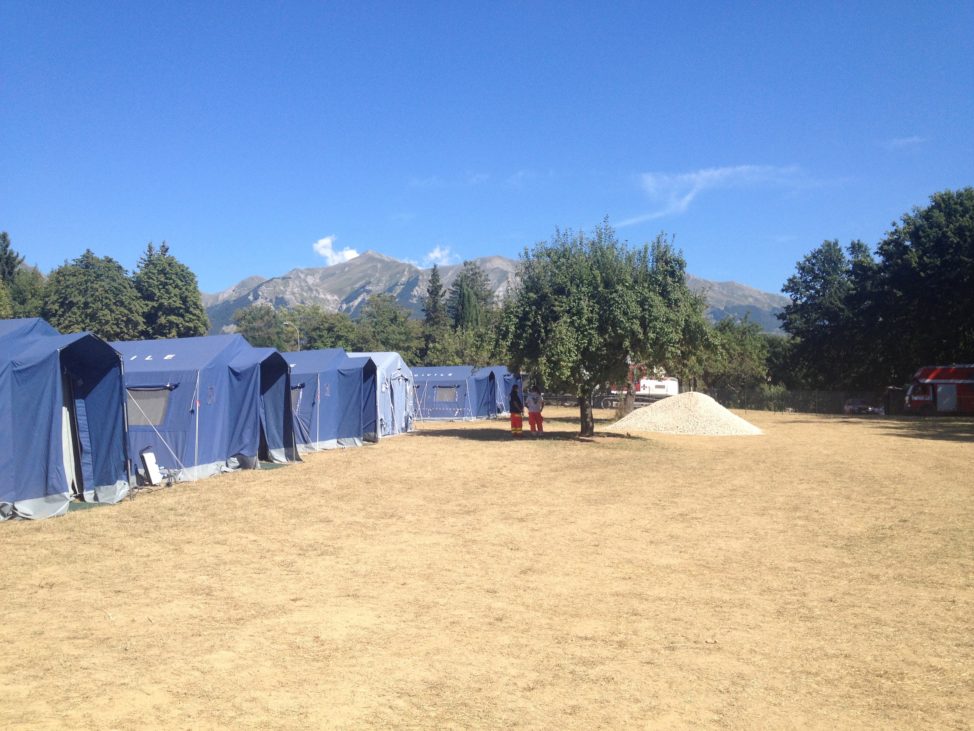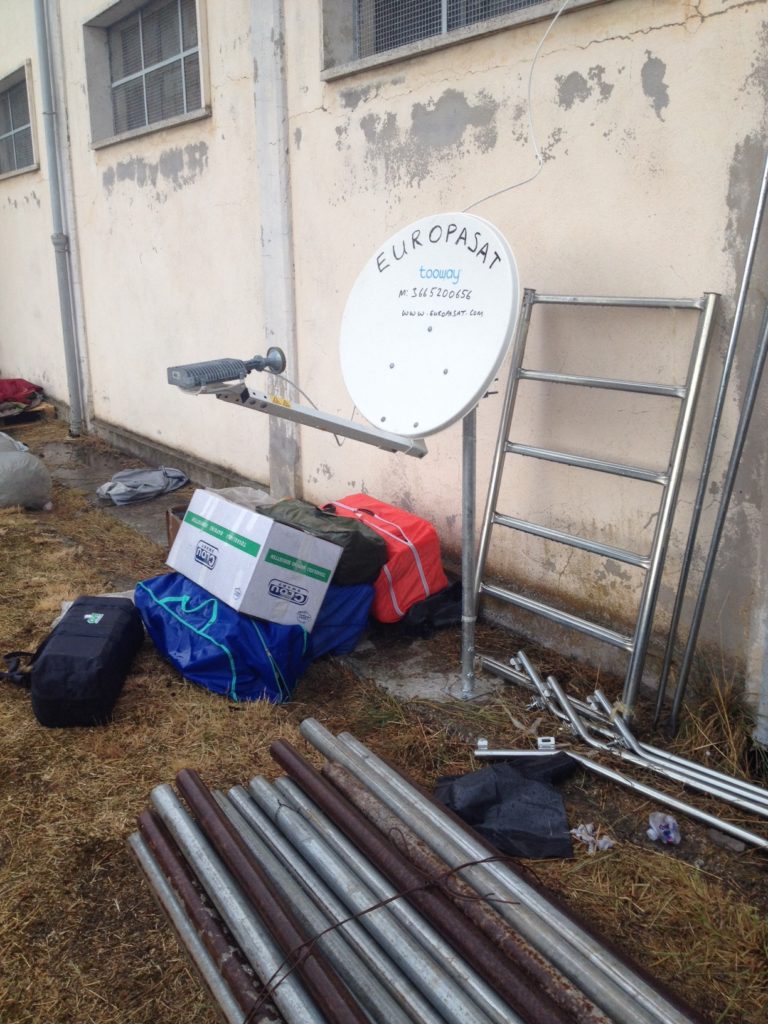
Volunteers from Disaster Tech Lab have been installing local Wi-Fi networks in Amatrice in central Italy, to restore some internet connectivity to the town, much of which was destroyed after an August 24 earthquake. (#TeamDTL)
Internet connectivity has become a way of life, so much so that its loss has deprived many survivors of the August 24 earthquake in Amatrice, Italy of their lifeline to the world. But a team of IT volunteers is on the ground to help fill the gap.
The Internet has become “so ubiquitous” that, for a lot of people, it is the main means of communication and the main means of access to information, said Evert Bopp, Founder and CEO of Irish nonprofit, Disaster Tech Lab (DTL), whose volunteers have been providing the central Italian town with much-needed connectivity.
After the 6.2-magnitude earthquake leveled Amatrice, killing 231 people, internet services were badly damaged. Thousands of residents, now living in shelters after losing everything, were in need of “some forrn of communication” to try and restore some semblance of normalcy to their lives and keep children distracted against a backdrop of devastation.
“It could be for various purposes,” Bopp added in an interview. “It could be as simple as staying in touch with friends and family and letting them know that you’re okay. It could be also things like your utility bills that keep going on even though your house is destroyed. You might have things like bills to pay.”
#TeamDTL spent the [day] configuring and installing the new arrived @CambiumNetworks equipment around #Amatrice pic.twitter.com/qliIsW8L2m
— Disaster Tech Lab (@DisasterTechLab) September 1, 2016
Disaster Tech Lab teams are providing shelters and command centers with satellite terminals and installing equipment to power local Wi-Fi networks with wind and solar energy. After the earthquake, first responders appealed to survivors to unlock Wi-Fi access on their mobile phones to help them find people trapped in the rubble.
The use of unlicensed Wi-Fi spectrum gives access to people with mobile devices and allows Disaster Tech Lab to rapidly deploy local networks whenever they respond to natural disasters, whether earthquakes, hurricanes or floods, in different parts of the world.

Volunteers from Disaster Tech Lab install satellite terminals to aid rescue efforts in Amatrice, much of which was destroyed in the August 24 earthquake. (#TeamDTL)
DTL has more than 250 volunteers working in 11 countries to address connectivity issues in disaster zones.
In some regions, volunteers deploy in areas where 4G or LTE mobile wireless services are still available even after the local telecommunications network has been largely destroyed.
“But because a lot of the aid organizations and responding organizations might come from abroad, they don’t have subscriptions … with providers,” said Bopp. “So we quite often use 4G or LTE connectivity also for backhaul [i.e., to transmit data back and forth beyond the original destination point] and then create a local Wi-Fi network to share it with people who need it, who need the internet access.”
“Connectivity has become such an integrated part of our lives,” he added, “and, you know, it creates a huge gap after a disaster.”
If you have IT skills and are inclined to help, visit the recruitment section on DTL’s webpage to volunteer.









